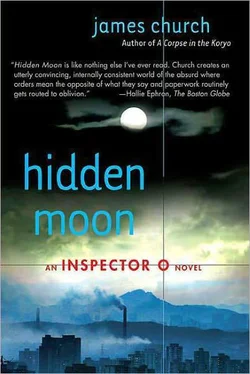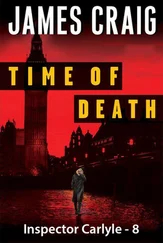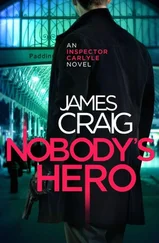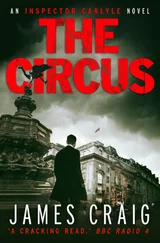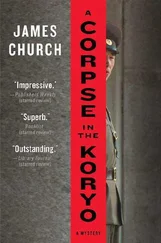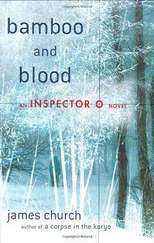James Church - Hidden Moon
Здесь есть возможность читать онлайн «James Church - Hidden Moon» весь текст электронной книги совершенно бесплатно (целиком полную версию без сокращений). В некоторых случаях можно слушать аудио, скачать через торрент в формате fb2 и присутствует краткое содержание. Жанр: Полицейский детектив, на английском языке. Описание произведения, (предисловие) а так же отзывы посетителей доступны на портале библиотеки ЛибКат.
- Название:Hidden Moon
- Автор:
- Жанр:
- Год:неизвестен
- ISBN:нет данных
- Рейтинг книги:3 / 5. Голосов: 1
-
Избранное:Добавить в избранное
- Отзывы:
-
Ваша оценка:
- 60
- 1
- 2
- 3
- 4
- 5
Hidden Moon: краткое содержание, описание и аннотация
Предлагаем к чтению аннотацию, описание, краткое содержание или предисловие (зависит от того, что написал сам автор книги «Hidden Moon»). Если вы не нашли необходимую информацию о книге — напишите в комментариях, мы постараемся отыскать её.
Hidden Moon — читать онлайн бесплатно полную книгу (весь текст) целиком
Ниже представлен текст книги, разбитый по страницам. Система сохранения места последней прочитанной страницы, позволяет с удобством читать онлайн бесплатно книгу «Hidden Moon», без необходимости каждый раз заново искать на чём Вы остановились. Поставьте закладку, и сможете в любой момент перейти на страницу, на которой закончили чтение.
Интервал:
Закладка:
I discovered that what the commission director didn’t say was that if no one used the path, the snack vendors who had paid him monthly bribes for occupancy rights near the river would be out of business. The director impressed me as a thoughtful man and kind in his own way, but not to the extent of overly worrying about the fate of the vendors. However, he knew that, bribes having been paid punctually on the fifth of every month by all concerned, if customers stopped coming because the benches had been removed, letters of complaint would appear. Such letters inevitably ended up in a file, and in this case, he was certain, they would make their way to his.
The dispute should have been solved in a dreary meeting with a political cadre, possibly a short woman speaking in hard-edged tones. Unexpectedly, it became a police matter. The commission director had no faith in political cadre, male or female, and the more he thought about it, the more he did not like the idea of letters of complaint in his file. One day, a Friday, he brought a few more wooden benches to the riverside, slopped on green paint he “found” along the road near his apartment, and went away. That night, the benches disappeared, every one of them. The director filed a complaint the next morning. He sat, vexed, in my office and said in a loud voice that he knew exactly who was responsible. I told him suspicions weren’t proof. That might have ended the matter because there was not much else to be done, and I was not inclined to do it, certainly not on a Saturday. We were shorthanded at the time, and chasing architects-which I had done early in my career-was not high on my list. But a few days later, a report came in from one of the security patrols. Around midnight on the night the benches vanished, a patrolman sitting under a bridge for a smoke had heard someone walk by speaking Chinese. He didn’t know if it meant anything, but he said it was rare.
Pyongyang has a small Chinese population. Over the years, I’ve made it my business to stay friends with a young Chinese woman, fairly pretty and quite observant, who does a good job keeping track of who spits and who doesn’t among her countrymen. After a quiet dinner with her, and a phone call or two, it became clear that the landscape architects had hired Chinese thugs to get rid of the benches. They hadn’t planned for the cheap green paint, which never completely dried. When the bench robbers got back to the hotel on Yanggak Island where they sit around the lobby and bother the prostitutes, the paint moved from their clothing to the chairs. The manager told them to go to hell and not come back. They broke his revolving glass doors on the way out.
It wasn’t much of a challenge to solve the case after that, though we never found all the benches-not even most of them. Apart from the green paint in the lobby of the hotel, they disappeared without a trace. The People’s Culture Commission was denied extra funds to buy new ones, so the few that were recovered had to be spread out. They sat like lonely outposts, which was fine for the young couples who used them as often as they could, on all except the coldest nights. The case file came back from the Ministry Review Board without any words of praise, without any comment at all, other than a note attached with a broken staple: “Pending.”
At least now, in the sunshine, it was pleasant to sit on one of the benches, repainted a dull white, and let my thoughts roam. They kept roaming to the bank robbery and to a persistent sense I had that, whatever Min thought the Ministry wanted, we should keep away from this case. I checked my pockets for a scrap of wood. On a spring day, a piece of mulberry is soothing, uncomplicated. Mulberry is friendly. Maybe that’s why silkworms like mulberry leaves so much; maybe the Chinese princess who first fed such leaves to them was smarter than her father, the Emperor, realized. I didn’t have any mulberry with me. There was nothing but a few pieces of paper for taking notes; no wood, no sandpaper. In my shirt pocket, I found a cigarette that was slightly bent in the middle. I smoothed it into shape, rummaged around for a match, then lit the tobacco. It was a local brand, out of a half-crushed package that sometimes sat in my desk drawer covering the badge I never wore. I took a few puffs and balanced the cigarette on the edge of the bench.
A young couple sat on the grass in front of me, leaning against each other. The man kept looking over his shoulder, but I didn’t take the hint. I had rescued this bench; I could park on it as long as I wanted. A two-man patrol walked by, and the couple moved apart; the older patrolman gave me a halfhearted salute and a tight smile, then returned to a conversation with his partner. The couple leaned back against each other. The man turned to give me another look, but I was already thinking about getting up.
There was no sense getting too comfortable-my next stop would have to be the city morgue. I couldn’t be sure how long they would keep the bank robber’s body. They might have already dumped it, which would explain why Min was only shown photographs. If they had already dumped it, I needed to know why. Incompetence was high on the list of possibilities, but there might be another explanation, a category three explanation that I could use to convince Min to let us drop the whole thing.
The morgue is not part of the Ministry. It’s not even really connected to the security services anymore. It works according to its own needs, and strictly on a space-available basis. It was never big to begin with, just a small addition at the back of the central hospital. Under the new economic program, with everyone urged to make a profit, the hospital decided to partition the morgue, move in some beds, and fashion two or three private rooms for paying, foreign patients. Patients pay their bills. Stiffs do not. I finished the cigarette, tossed the stub in the river, and climbed the steps back to my car. As I started the engine, it somersaulted across my mind that cigarettes made me jumpy. I wondered if it was possible to smoke mulberry leaves. I wondered if the Chinese princess had tried.
6
The door to the morgue was locked. I knocked, but no one answered. I knocked again, listened for movement from inside, then decided to let myself in. The morgue could be considered an official location, even if it isn’t part of the Ministry. Death was an official act, more or less. Anything that permanent had to be considered official. I was on official business, I told myself, and that meant I was allowed into official locations. The logic was weak; the lock on the morgue’s door, on the other hand, was not. It looked old, but it defeated every trick I tried with the cheap lock-picking set I carried around.
This job of picking locks was newly assigned to the local sector offices, and we had no standard-issue equipment. Once, there was a specialist who did nothing but pick locks. It was said that he learned his trade in Moscow during the years when the Russians pretended we were brothers and worth training. He was a very quiet man. Picking locks was a quiet profession, I always thought, so it didn’t surprise me that he never responded when I greeted him in Russian. If we needed to get into a building, we’d wait outside for him to arrive. He’d walk in past us without looking up, and emerge a few minutes later. In those days, most doors weren’t locked anyway, so it was rarely a problem.
After cuts in the Ministry’s budget-part of a larger move, we were told, to embrace “new realities”-the lock man moved on to other things. He opened his own shop, exactly when more people were installing locks to keep out the reality of an increase in the number of crooks. So, no more designated lock expert, no assigned equipment, and no approved procedures for entering all of the suddenly locked buildings. There was nothing to do but follow the old practice, sitting around outside, figuring whoever was inside would have to come out, or, if they’d already left, would eventually return to open the door and go back in.
Читать дальшеИнтервал:
Закладка:
Похожие книги на «Hidden Moon»
Представляем Вашему вниманию похожие книги на «Hidden Moon» списком для выбора. Мы отобрали схожую по названию и смыслу литературу в надежде предоставить читателям больше вариантов отыскать новые, интересные, ещё непрочитанные произведения.
Обсуждение, отзывы о книге «Hidden Moon» и просто собственные мнения читателей. Оставьте ваши комментарии, напишите, что Вы думаете о произведении, его смысле или главных героях. Укажите что конкретно понравилось, а что нет, и почему Вы так считаете.
